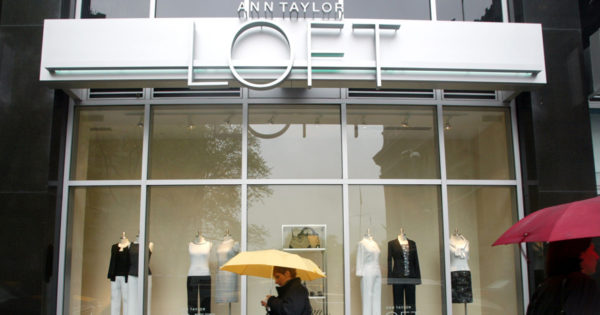
Retail had a bit of a mixed week, with discounters Dollar General and Dollar Tree emerging as clear winners with comparable sales increases. However, concerning news from Ann Taylor and Loft parent Ascena and a proposed debt for equity swap from Party City both served as reminders that there are still several retailers figuring out how to survive the impact of store closures due to Covid-19.
Ascena said it was weighing all of its options, while Party City said it was attempting a debt for equity swap that would reduce debt by some $450 million.
“Despite aggressive actions to preserve liquidity, the pandemic has significantly reduced our earnings and cash flow, resulting in increased levels of debt and deferred liabilities,” said Carrie Teffner, interim chair of Ascena, in a statement.
“With retail stores making up the majority of our revenue and cash flow, the uncertainty created by COVID-19 requires us to evaluate all options available to protect the business and its stakeholders,” she said.
Burlington Stores and Costco had some positive news, though Burlington’s sales and Costco’s earnings both took a hit.
Off-price chain Burlington said sales declined by 51% to nearly $800 million from about $1.6 billion for the same period a year prior, as stores were shuttered. The retailer also reported a net loss of about $330 million compared to net income of almost $78 million year over year.
But the company’s CEO Michael O’Sullivan said there is pent-up demand as customers respond positively to its stores reopening.
“We began to re-open our stores earlier this month, and expect to have over 400 stores open by this weekend; we have been pleased with the traffic levels and sales that we have seen so far,” he said in a statement.
Liquidity also remains strong at Burlington, with the company sitting on about $1.6 billion of cash and availability on its asset-based loan.
Costco, which revealed its third-quarter results, said comparable sales were up 4.8% year over year. Net income, however, was nearly $840 million, around 7.6% below last year’s net income of almost $910 million, in part due to about a $280 million pretax charge attributed to Covid-19-related wage and sanitation costs.
Meanwhile, while the department store category has struggled, with Nordstrom’s latest results underlining that point, both it and rival Macy’s appear to have enough liquidity to weather the storm.
Macy’s in particular is close to completing what is now a $1.3 billion bond offering, which should help the retailer survive through the end of the year.
Nordstrom, on the other hand, said net sales for its first quarter decreased 40% to approximately $2 billion from about $3.3 billion, while it had a net income loss of about $520 million compared to net income of $37 million for the same period a year prior.
But the upscale department store chain said it had enough liquidity, with almost $1.4 billion in cash on its balance sheet.
Back to the discounters, Dollar General provided the most robust earnings results, with same-store sales for the first quarter up nearly 22% year over year. Net sales were up almost 28% to about $8.4 billion from approximately $6.6 billion.
Dollar General also raked in profits with net income up by nearly 69% over the period a year prior, to $650 million from $385 million.
Dollar Tree, which is the parent of Family Dollar, said same-store sales were up 7% year over year for the first quarter. Net sales increased 8.2%, it said, to almost $6.3 billion from about $5.8 billion. Net income fell, however, by about 7.5% from the same period a year prior to $248 million from $268 million.
https://www.adweek.com/retail/retail-had-an-uneven-week-as-earnings-and-announcements-rolled-in/

